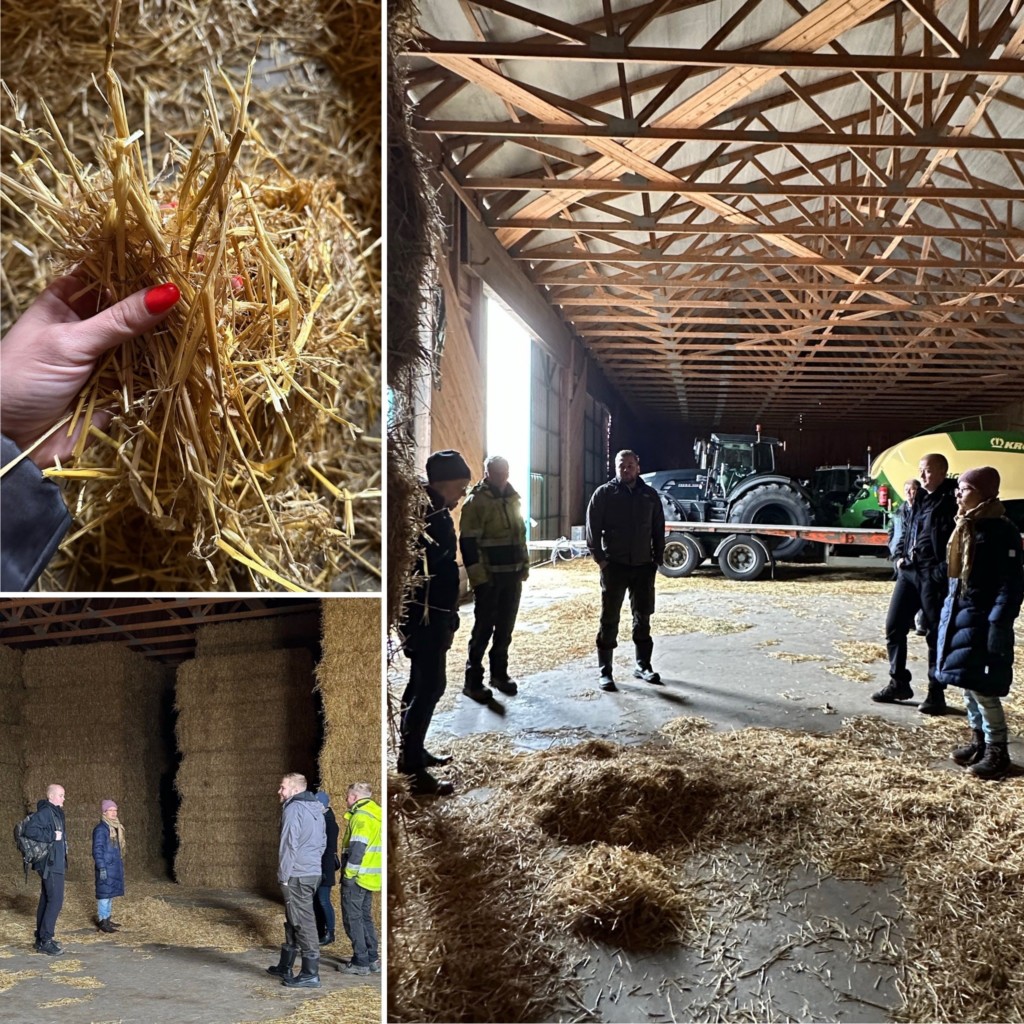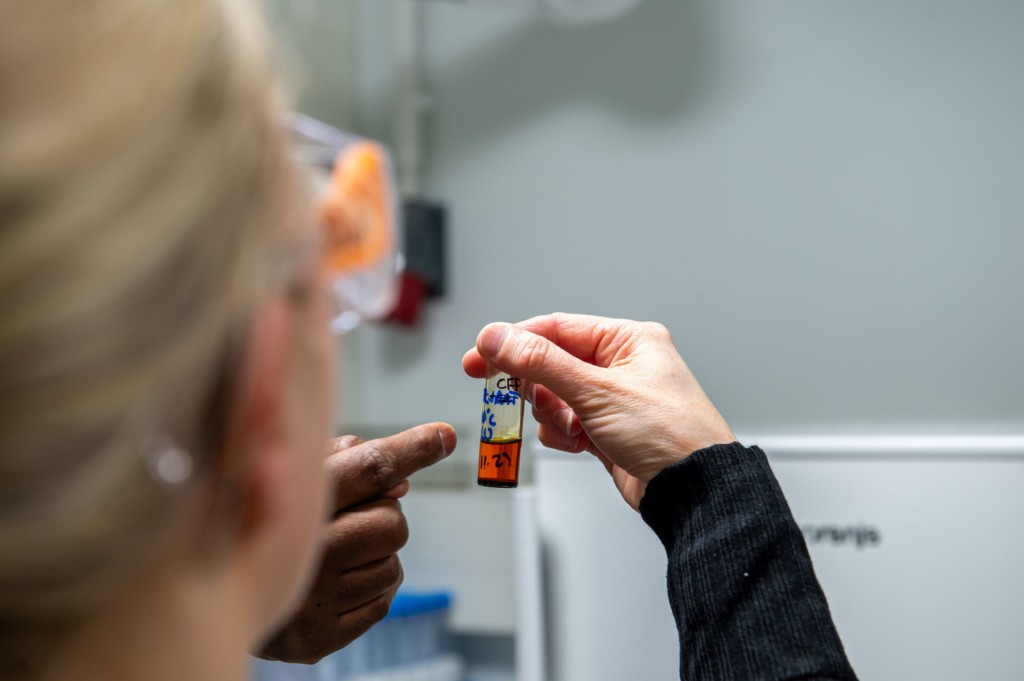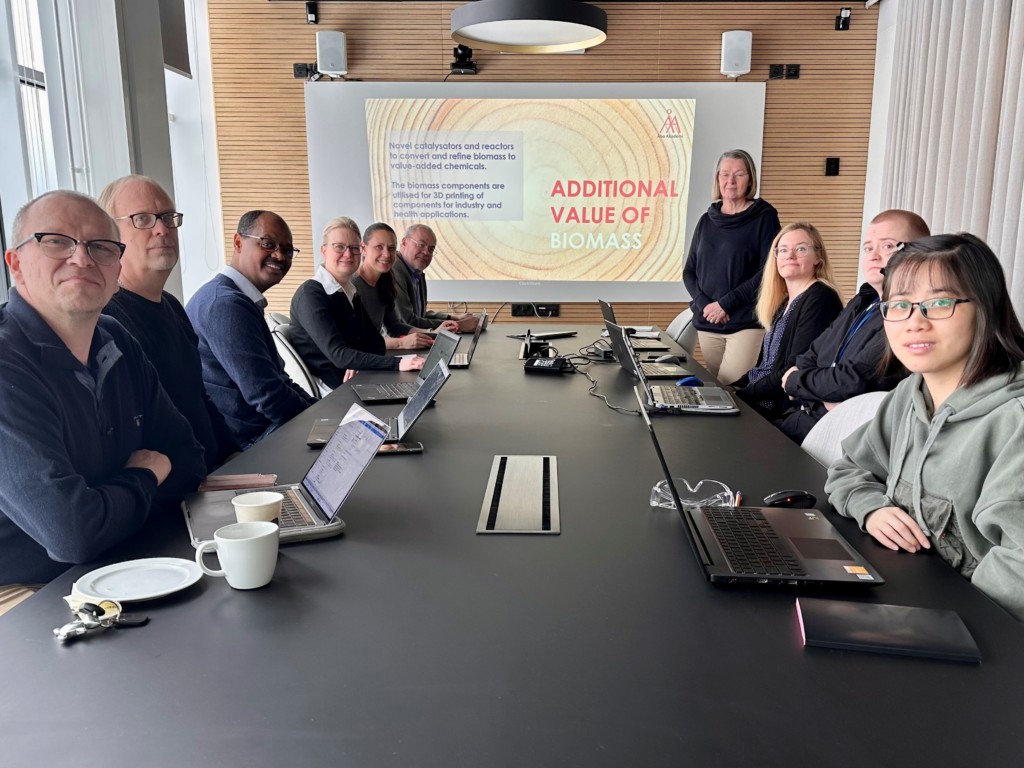A little over a year ago, the BioDemo project was launched. The main goal of the project is to build value chains between bio and circular economy operators in the Turku region. The value chains, which include the entire chain from harvesting and procurement of biomass, refining and processing of raw materials, and the final manufacturing of products, are tested together with companies. The aim is to refine local raw material such as straw and common reed into raw materials used in for example the textile and cosmetics industry. Simultaneously, information is collected on the availability of bio-based raw materials in the region and how the availability meets the industrial raw material needs.

Where are we now, project manager of BioDemo Ida Forssell-Martikainen?
“The project has progressed at a fast pace. Networks have been grown and numerous company and operator meetings have been held. We have also faced plenty of challenges: the logistics chains around the harvesting of raw materials are still underdeveloped for the time being, and a lot of work is being done, for example, with acquiring permits for the harvesting of common reed.
The use of renewable biomass as an industrial raw material is key to circular economy and sustainable business. In the wood industry, technologies and operational chains have been developed for decades, but with many non-wood-based biomasses, the development is still on an elementary level on many fronts. A profitable and sustainable business model requires a cost-effective value chain – it is not enough to know the raw material’s potential, possibilities, and environmentally beneficial aspect, if the harvesting technology or logistics chains are deficient and unprofitably expensive. Among other things, a lot of working hours are put into the development of these areas.”
Common reed
“Common reed is a versatile raw material in terms of biomass, the growth of which has increased notably because of eutrophication in lakes and sea bays. The development of equipment for the removal of common reed and its utilization in Finland has been minimal. A workshop was organized in May for the development of common reed cutting technology. 28 industry actors, company representatives, environmental experts, and representatives of interest protection agencies attended the workshop. As a result of the workshop, a core group was assembled to plan the selection of a uniform cutting area for long-term use. The area will be used for companies’ device pilot testing, for building and testing the logistics value chain, and for harvesting raw materials.”
Straw
“Straw is produced as a side stream of agriculture. Harvesting technology and logistics operators for agricultural activities and collecting biomass already exist, but there are several challenges for harvesting straw in Finland, such as cost efficiency, nutrient replacement, and weather conditions. Removing straw from farmland is not a given, and there are many factors which cause for it often to be more profitable to leave straw as a biomass in the soil instead of removing it. In certain situations, nonetheless, straw can be a problem and its removal is necessary for crop production, but the same challenges still exist. The potential of straw as an industrial raw material has however been researched to be significant. Within the project framework, several meetings regarding straw availability and operating models have been arranged with farmers, companies, and advocacy groups.”
Research and analyzes
Åbo Akademi has studied winter-cut reed samples and straw pellets, of which preliminary compositional analyzes (cellulose, hemicellulose, and lignin) have been performed. Next is the development of the separation process, so that the composition of the samples can be analyzed more precisely. We will also possibly investigate whether the separation of different parts of the plant (stem, leaf, flower) gives the process added value. For this, the different parts of the plants are analyzed and the differences in composition are determined. Cooperation with companies is close and continuous, to ensure that the analyzes and studies carried out meet the genuine needs of the industry.”

“During the summer, pyrolysis processing will also be studied in cooperation with companies, where the properties and quality of biochar made from common reed and mixtures will be analyzed, as well as the amount of emissions formed in pyrolysis. At the end of the summer, Turku university of applied sciences will still deliver summer reed samples to Åbo Akademi, so that the differences between winter and summer cut reed can be determined.
The value chain demonstration project is progressing according to schedule and the cooperation with companies, project partners and lobbyists is very good. Despite the challenges, the goals are still high, and by July 2025, the functionality of the realized value chains will be presented. “

Turku Science Park Ltd is the main implementer and coordinator of the group project, working in close collaboration with Åbo Akademi and Turku University of Applied Sciences. The project will continue until July 2025 and the goal is to contribute to the development of business operations on an industrial scale in accordance with bio and circular economy in the Turku region. The project is co-funded by the European Union.
Further information:
Ida Forssell-Martikainen, Project Manager
CleanTurku, Turku Science Park Ltd
ida.forssell@turkubusinessregion.com
Nina Savela, Expert
Turku University of Applied Sciences
Jan-Erik Lönnqvist, University Lecturer
Laboratory of Molecular Science and Engineering
Åbo Akademi
© 2023 Kiertotalous. All rights reserved
22.6.2023| Originally published and written in Finnish: Oljesta ja järviruo´osta raaka-ainetta tekstiili- ja kosmetiikkateollisuudelle – Kiertotalous (kiertotaloudenvarsinaissuomi.fi) |by Eeva Salmi

Cover photo: Jerome Tornikoski

